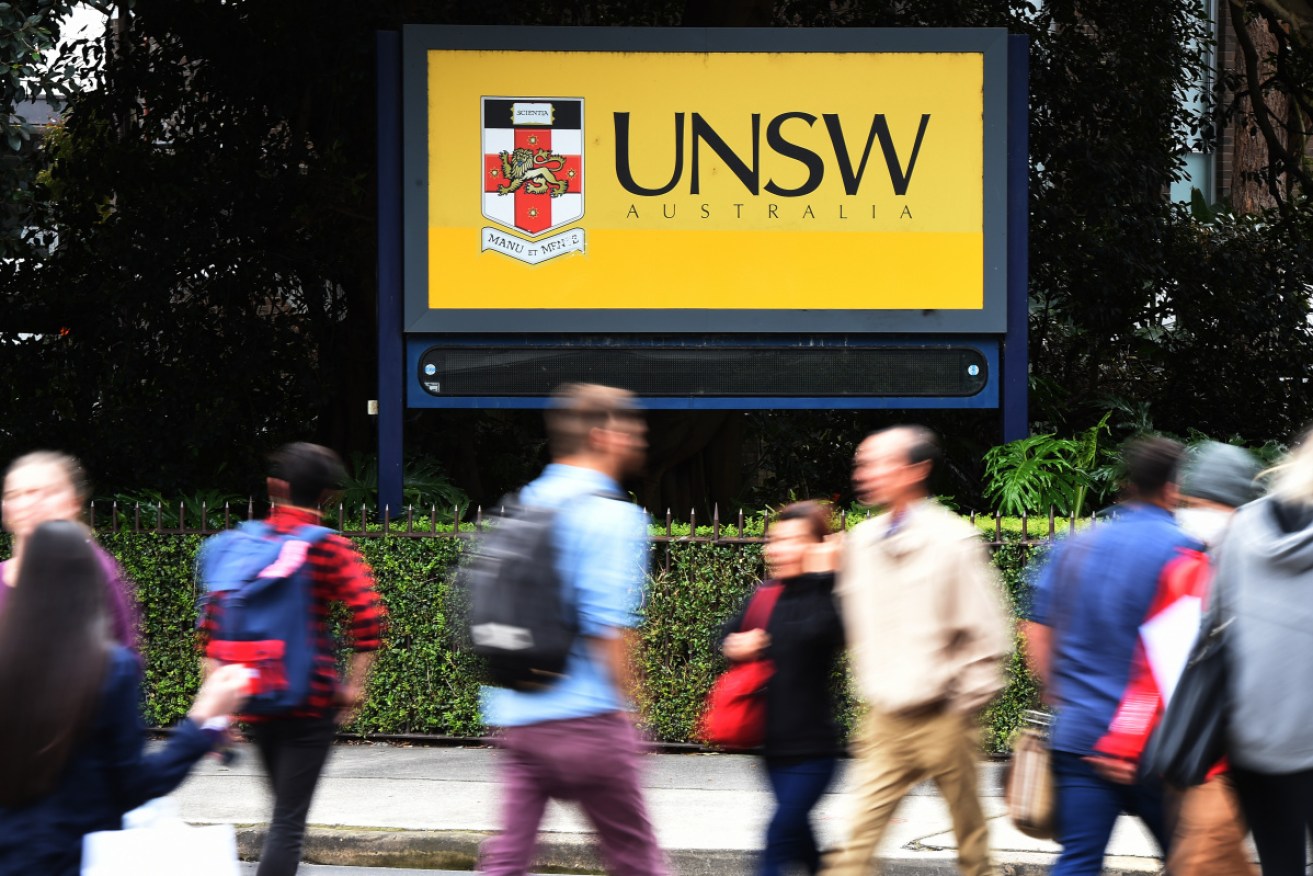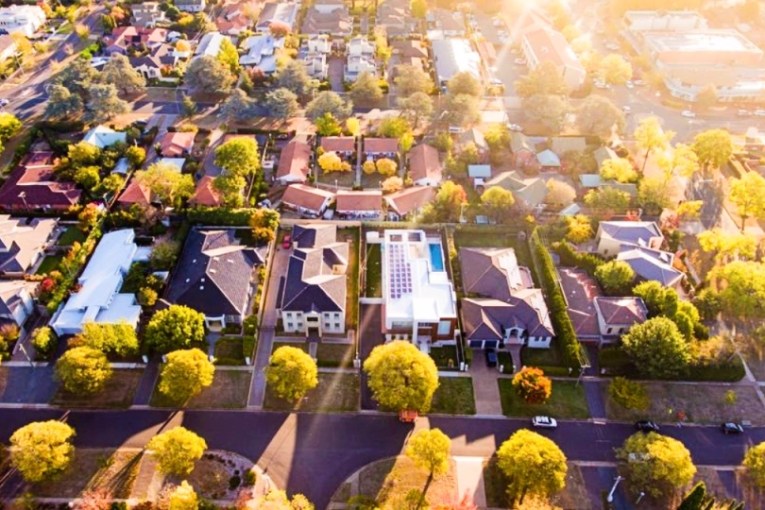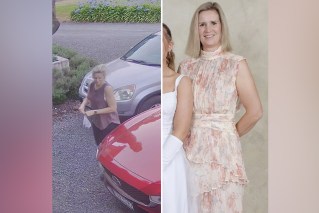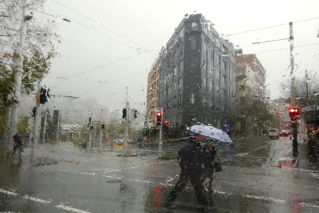UNSW apologises after ‘act of cowardice’ accusation in deleting Hong Kong posts


UNSW has apologised for deleting tweets. Photo: AAP
The University of NSW has apologised after tweets about the Hong Kong-China situation, featuring a leading human rights expert, were deleted after an online campaign from Chinese students and media.
UNSW found itself at the centre of a geopolitical storm over the weekend, after an article published on its website, titled ‘China needs international pressure to end Hong Kong wrongs’.
The article, written by a university employee, quotes Elaine Pearson, Australia Director at Human Rights Watch and a UNSW adjunct lecturer.
Ms Pearson was quoted as saying the United Nations should appoint “a special envoy to closely monitor the decline of human rights in Hong Kong” following China implementing recent controversial laws.
“The passage of the National Security Law is basically the death-knell of the “one country two systems” arrangement,” Ms Pearson was quoted as saying.
“This should not go unchallenged by governments.”

Elaine Pearson was quoted in the UNSW article. Photo: AAP
The article, as well as tweets on the official UNSW Twitter account, were criticised harshly online by Chinese students.
The controversy made it into the Global Times, recognised as Chinese government state media, as well as spreading across social media platform WeChat.
Messages called on Chinese students of UNSW to contact the university and call for the article’s retraction.
Some 16,000 Chinese students attend UNSW.
Over the weekend, the article appeared to go offline for a short time, before being moved to a new home on the law faculty’s webpage.
Tweets from the @UNSW account, linking to the article, were soon swarmed with hundreds of comments, as were unrelated posts on Facebook and Instagram.
Later, another tweet from the university was posted, distancing UNSW from the views in the article.
“The opinions expressed by our academics do not always represent the views of UNSW. We have a long & valued relationship with Greater China going back 60 years,” the tweet, posted in reply to the original, read.
Both tweets were later deleted.
Part of the article, where Ms Pearson said the national security law “criminalises a whole lot of activity, which would otherwise be lawful and unremarkable in most democracies”, also appeared to vanish between the weekend and Tuesday.
However, the university blamed that on a tech issue when the article was moved between sections on the website, with the section now restored.
How can @UNSW call itself a university if they allow this to happen? When respected voices like @PearsonElaine and @hrw are being censored we have a big problem. #auspol https://t.co/qPLmhwXOiu
— Senator Tony Sheldon (@TonySheldonNSW) August 3, 2020
The university’s decision to delete the tweets, and move the article, was harshly criticised.
Federal ALP senator Tony Sheldon called it “a big problem”.
Liberal MP Dave Sharma also slammed the move, while party colleague Tim Wilson told the Sydney Morning Herald “it just seems to me to be a form of cowardice to have pulled down the article”.
https://twitter.com/DaveSharma/status/1290153971542179840
Fergus Ryan, an analyst with the Australian Strategic Policy Institute, told The New Daily it was a bad look for the university to cave to the social media storm.
“I think UNSW has conducted themselves extremely poorly. They should have not so easily acceded to the demands of the campaign,” he said.
“It’s a complete act of cowardice. It has severely damaged its reputation as an institution protecting academic freedom and freedom of speech.
“There’s no clear reason to me why they’ve done what they’ve done.”
In an article on Human Rights Watch’s website, Ms Pearson claimed “the university might be more interested in damage control than an open marketplace of ideas.”
Quote of the Day, by @PearsonElaine on the critical test of academic freedom for Australian universities https://t.co/uFS5JZAlcp pic.twitter.com/SlRNanWEUL
— Human Rights Watch (@hrw) August 4, 2020
On Monday, a UNSW spokesperson told The New Daily the posts were removed “as they were not in line with our policies – and the views of an academic were being misconstrued as representing the university.”
But on Wednesday, the university’s president and vice-chancellor emailed all staff, apologising and admitting it was the wrong move.
“The tweet should not have been removed. I apologise for this mistake and reaffirm unequivocally our previous commitment to freedom of expression and academic freedom,” Professor Ian Jacobs wrote in an email, obtained by The New Daily.
He said there was “no excuse for our failure” but explained “UNSW as an institution does not take a position on political issues”.
“On this occasion the tweet was removed as it appeared to represent a UNSW view, rather than the view of an individual,” Professor Jacobs continued.
“UNSW will avoid this situation in the future by making it clear that such views are not those of the university – and as such will alter its social media accounts to state that the posting of material does not amount to endorsement.”
The VC's statement on academic freedom is a good first step. I hope @UNSW will also share it with students & publicly. And UNSW should convene a public discussion on what academic freedom means stemming from this episode. https://t.co/61bZ98Grw3
— Elaine Pearson (@PearsonElaine) August 5, 2020
Ms Pearson said it was “a good first step” but called for UNSW to make a more public statement on academic freedom.
The New Daily understands Ms Pearson has asked the university for an investigation into the incident.








